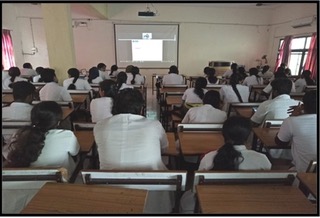CME ritualised: The Good, the Bad, and the Unendurable Bore
By Jack Aslanian
We could be obliged to take courses to fulfil licensing and certification requirements, or we take them voluntarily for professional improvement, but in either instance attending CME courses imposes on our time and resources, and sometimes on our patience. To this day the memory of some postgraduate courses I took in Cincinnati make me recoil. Wherefore this is an exercise in hypercriticism.
Besides a gladiatorial ballpark riverside it has an attractive zoo with a broadly representative collection of fauna, but my memories of Cincinnati, Ohio, regrettably alas, are evoked mainly because of a member of still-too-far-from-being-endangered species, who would take the podium initially as co-director of the course, and who eventually evolved into its solo directorship. Which sinecure, by the way, stokes speculations about how he had come to be assigned to present notably large chunks of the syllabi of the weeklong courses. But that is another story; and I use “present” imprecisely and euphemistically. He recited facts and concepts, but without presenting anything other than leaden tedium.
He would light the first slide. Standing askew to the screen, he’d read as if for the first time for him texts he had composed and redacted himself — some seemingly as recently as during the lunch breaks preceding them. First he enounced the ineluctable course title and the heading of the subsection immediately upcoming. Continuing to regard the screen as if it were an unreliable prompter, he would next read verbatim the second slide, which iterated his own name and professional affiliations. (The emphasis is intentional and a gauge of his artlessness). And then, seeming inflated with a sense of fealty to higher powers, for a painful forty minutes — questions at the end before the coffee break, thank you! — he would advance and monotonously read one slide after another, with a slight pause before each as he strove to dispel his incredulity at the arrival of that particular slide.
In tone, he could not have been more slavishly recitative than if he had been dispatched forth from sacrosanct dressing rooms with a mission to publish theocratic tablets. The closest he came to having a hiccough in his stiff pose was when he would sweep out a rigid left arm in a pretorial gesture purposed to hail the end of one paragraph and preempt the vector of our attention to the next one. Affecting a gravitas so over the top as to be very vexing to those who heard him, he comported himself as an entitled and self-felicitous sycophant — because, I imagine, he was in fact insecure and artless. He showed no evidence of being aware of oratorical spicing, such as inflection, that grab audience attention. If he ever had had any notion of the value of modulation in speechmaking he had forgotten it early in his career. Perhaps he irrecoverably had fatigued and depleted himself during early efforts to mount podiums and make deliveries he hoped would shore up his professional stature and keep it bolstered. Or, did he simply believe that all those who took his courses simply were dim witted and in need of help from him to read his slides?

We have all been students of one kind or other. In multiple lecture halls we have acquired knowledge at the same time as our critical faculties have been drilled and goaded. Many of us have taken courses or workshops on how to make effective public presentations, or have ourselves lectured on the topic. Filling evaluation forms, we have graded those who have taught us; and if asked to, we can make credible lists of characteristics that make a lecturer good, or at least effective. We know that style of delivery is important, though admittedly secondary to the communication of substantive content. We would agree that a common mistake speakers make is to bring to the lectern sheaves of written pages and read through them impassively. “Do not read a prepared speech,” is the shared wisdom. “Unless it has been scripted to sound natural.” Above all, do not bore.
In the milieus of EMWA or AMWA (as two examples) much is said and heard about writing and use of language. Our writings often tend to be formulaic and boilerplate, and ritualised. So too our lectures. For many of us teaching or giving speeches are adjuncts to our main professional engagement(s) — healing, doing research, reporting findings, regulatory documentation. So, we are not expected to be excellent Shakespearian orators, though still good enough one hopes to keep our audiences engaged. Something is very, very wrong, however, if a speaker feels obliged to display slides and read their texts verbatim as if they were extraordinary maiden revelations. “Wow, lo and behold. My very own thoughts on this slide. How amazing. And I to have the opportunity to read them to you,” was part of the unspoken message of the Cincinnati bore.
Some lecturers at least have the decency [sic] to lull their audiences into flaccid postprandial naps. But the bore had not the talent to stupefy. He was a natural bore, and rousingly irksome. The illogicality of his verbatim readings of his slides prevented a listener from retreating into the shelter of a siesta. He could not have been totally unaware of the artlessness and redundancy of his delivery. Many of my cohorts in those courses evaluated his sessions with, I am sure, anonymous aspersions, as I did. To this day I wonder if he ever suspected me of being one of those who submitted vengefully caustic course evaluations. “You automaton nincompoop. If all you have to say, all you can say, is on the slides, what is the logic of your showing up in class? Why not just stay away and save us the odium deserved by the occupier of the podium?” I wrote in one of those — working in the rhyme to show him that he had not succeeded in turning all attendees into complaisant dopes. Perhaps even none.
But for the printed course syllabus and the bore’s take-home handouts (supplemented by the contributions of other faculty less unimaginative than he), I would have departed Cincinnati with a sense of having wasted my time and course fees. So what then kept me from leaving the lecture halls when he took his turns on the podium? I suppose it was politeness on one hand, the need to feel that I had earned my CME credits and the course certificate through faithful attendance on the other, plus unwillingness to disturb others by conspicuously jostling my way out at the starts of his lectures.
The very best of our teachers not only demonstrate mastery of their subjects, they also captivate us with their polished renditions. We remember them not simply for being good teachers, but also for being artful performers... This aspect, however, sometimes can have ironic fallouts, as I bemusedly learned some years ago when I took an endocrinology course. Doctor W. had everything one could expect of a teacher: knowledge aside, poise, focus, confidence, humour, pithiness, and a Shakespearean orator’s stage presence... He was simply perfect and perfectly spellbinding. I was so full of admiration for him that I contemplated changing my originally intended major to dedicate myself to his discipline. Sadly however, I did not do well in his exams. The exquisiteness of his lectures had waylaid me from being a good student.
Ironically, in my sophomore year I had some free time, and remembering the spell of his lectures I decided to sit through them again, this time as a spectator. But I had an unforeseen revelation: his lectures were so familiar. I realised that he reprised them every year. He had laboured to marry substance and form, had scripted his lectures meticulously, and had rehearsed and memorised text and body language so well that when he lectured it seemed that he was adlibbing and verbalising his thoughts anew. Unstintingly honed, his lectures sounded fresh each year, each hour, each minute, impeccable even in a second hearing. He had mastered the art of obviating boredom. He had kept me awake, engaged, and entertained. The worst he had done by me then was to make me feel shame inwardly, for not having performed reciprocally well in his course — aesthetically the most admirable, no, also enviable, of all the courses I have ever taken. Of all the teachers I have ever had.
We cannot avoid continuing education, but spare us the tedium of the artless lecturer.
Jack Aslanian is a physician, medical editor, and member of EMWA.

